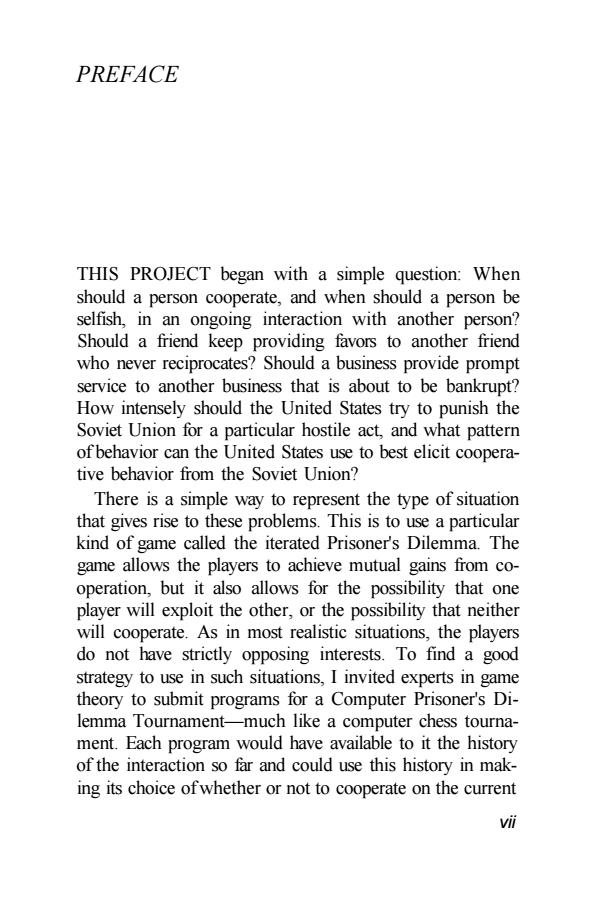正在加载图片...

PREFACE THIS PROJECT began with a simple question:When should a person cooperate,and when should a person be selfish,in an ongoing interaction with another person? Should a friend keep providing favors to another friend who never reciprocates?Should a business provide prompt service to another business that is about to be bankrupt? How intensely should the United States try to punish the Soviet Union for a particular hostile act,and what pattern of behavior can the United States use to best elicit coopera- tive behavior from the Soviet Union? There is a simple way to represent the type of situation that gives rise to these problems.This is to use a particular kind of game called the iterated Prisoner's Dilemma.The game allows the players to achieve mutual gains from co- operation,but it also allows for the possibility that one player will exploit the other,or the possibility that neither will cooperate.As in most realistic situations,the players do not have strictly opposing interests.To find a good strategy to use in such situations,I invited experts in game theory to submit programs for a Computer Prisoner's Di- lemma Tournament-much like a computer chess tourna- ment.Each program would have available to it the history of the interaction so far and could use this history in mak- ing its choice of whether or not to cooperate on the current viiPREFACE THIS PROJECT began with a simple question: When should a person cooperate, and when should a person be selfish, in an ongoing interaction with another person? Should a friend keep providing favors to another friend who never reciprocates? Should a business provide prompt service to another business that is about to be bankrupt? How intensely should the United States try to punish the Soviet Union for a particular hostile act, and what pattern of behavior can the United States use to best elicit cooperative behavior from the Soviet Union? There is a simple way to represent the type of situation that gives rise to these problems. This is to use a particular kind of game called the iterated Prisoner's Dilemma. The game allows the players to achieve mutual gains from cooperation, but it also allows for the possibility that one player will exploit the other, or the possibility that neither will cooperate. As in most realistic situations, the players do not have strictly opposing interests. To find a good strategy to use in such situations, I invited experts in game theory to submit programs for a Computer Prisoner's Dilemma Tournament—much like a computer chess tournament. Each program would have available to it the history of the interaction so far and could use this history in making its choice of whether or not to cooperate on the current vii